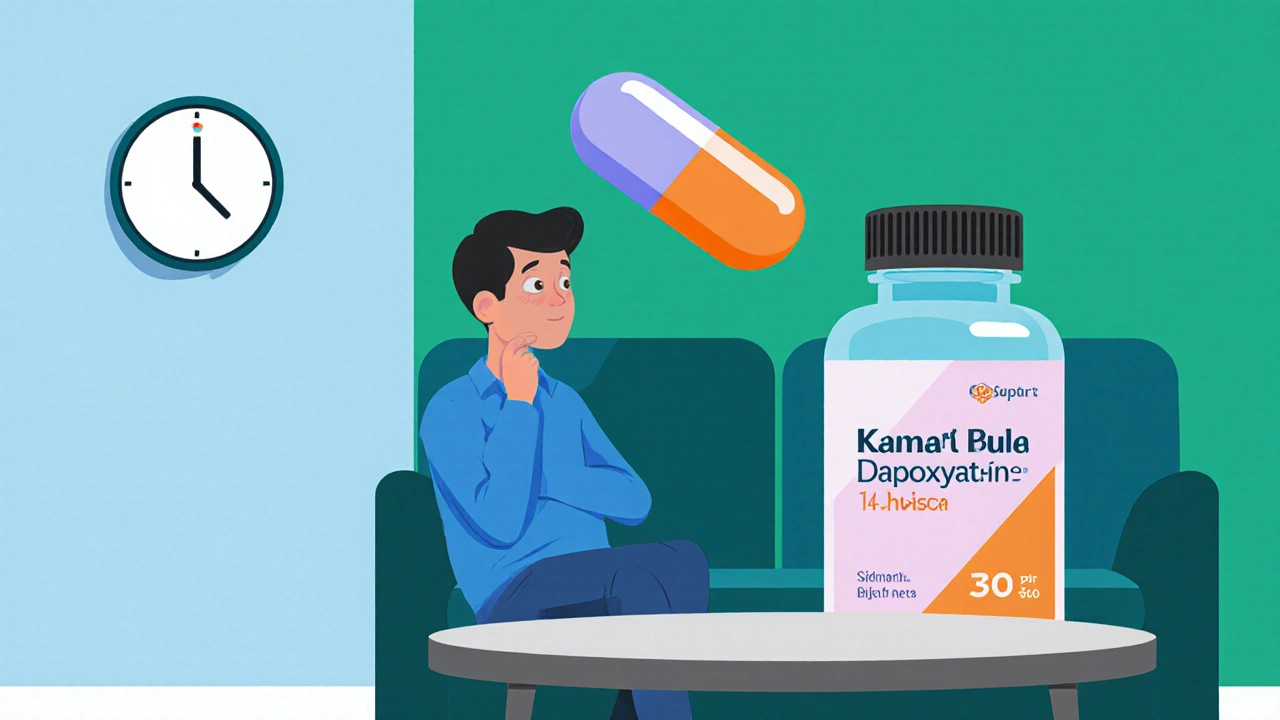Dapoxetine – Quick‑Acting Help for Premature Ejaculation
When dealing with Dapoxetine, a short‑acting selective serotonin reuptake inhibitor approved for treating premature ejaculation, men often notice a longer latency and more confidence in the bedroom. Also known as Priligy, it works by boosting serotonin levels just enough to delay ejaculation without the prolonged effects of regular SSRIs. Dapoxetine is therefore a targeted option for those who need on‑demand control rather than daily mood regulation.
Key Concepts Linked to Dapoxetine
The condition it tackles, premature ejaculation, a common sexual dysfunction where ejaculation occurs sooner than desired, affects millions of men and can strain relationships. Because it’s a sexual‑health issue, the impact spreads beyond the bedroom to overall wellbeing, self‑esteem, and partner satisfaction. The drug belongs to the broader class of selective serotonin reuptake inhibitors (SSRIs), medications that increase serotonin activity in the brain, traditionally used for depression and anxiety. Understanding how SSRIs influence serotonin helps explain why Dapoxetine can delay ejaculation without causing the mood‑altering side effects of longer‑acting agents.
Any medication brings a risk of drug side effects, unwanted reactions that can range from mild nausea to more serious cardiovascular issues. Common complaints with Dapoxetine include headache, dizziness, and occasional gastrointestinal upset. Recognizing these signals early is crucial, especially for men who are also taking other drugs for hypertension, heart disease, or depression – a situation known as polypharmacy. When multiple agents interact, the chance of adverse drug events rises, making it essential to review all prescriptions with a healthcare professional.
One of the biggest challenges patients face is distinguishing whether a new symptom stems from the medication or an underlying health problem. A systematic approach—checking timing, reviewing dosage changes, and using a side‑effect checklist—can clarify the source. This mirrors the strategy outlined in the article "How to Tell If Your Symptoms Are From a Disease or a Drug Side Effect," which stresses a step‑by‑step evaluation to avoid unnecessary worry.
Dosage matters too. Dapoxetine is usually prescribed as a 30 mg or 60 mg tablet taken 1‑3 hours before intercourse. Skipping a dose or taking it too early can reduce effectiveness, while exceeding the recommended amount may increase side‑effects. For men who have cardiovascular concerns, a lower starting dose under medical supervision is advised to monitor blood pressure and heart rate.
Because sexual health is personal, open communication with a partner and a clinician creates the best outcomes. Discussing expectations, possible side effects, and any other medications you’re on helps tailor the treatment plan. When the right dose is found and side effects are managed, many users report a significant improvement in control and confidence.
Below you’ll find a curated set of articles that dive deeper into these topics—from practical tips on managing side effects to broader discussions on polypharmacy and drug safety. Whether you’re new to Dapoxetine or looking to fine‑tune your regimen, the collection offers actionable insights you can apply right away.
Kamagra Super (Sildenafil + Dapoxetine) vs Alternatives - Full Comparison

A detailed comparison of Kamagra Super (sildenafil + dapoxetine) versus approved ED and PE alternatives, covering efficacy, safety, cost, and legal status.
- October 26 2025
- Tony Newman
- 8 Comments
